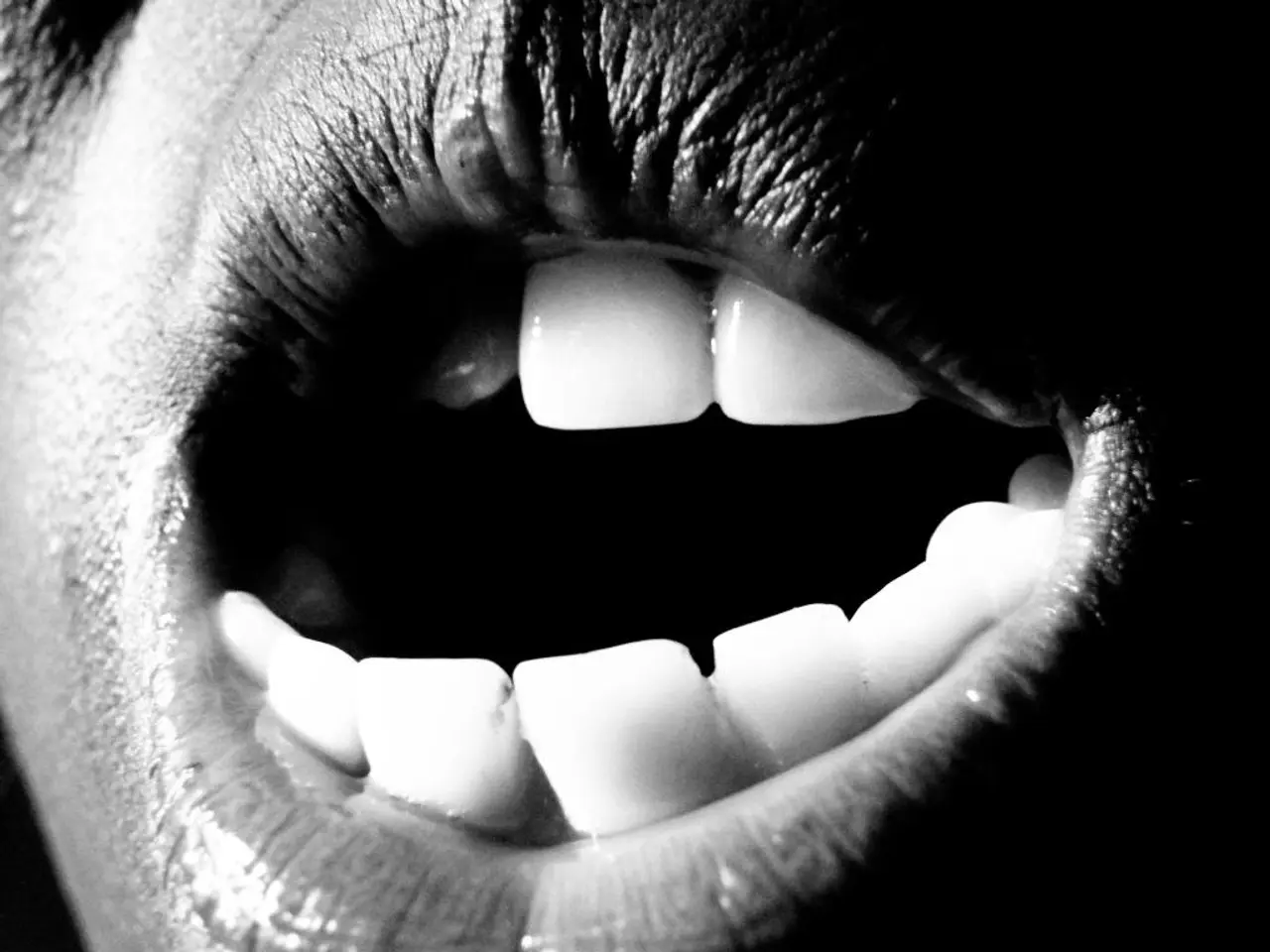Intense Head Pain: Identifying Signs, Root Causes, and Beyond
In the realm of common health issues, tension headaches and bruxism, a condition characterized by teeth grinding, are often intertwined. Here's a guide to understanding, diagnosing, and managing these conditions.
Healthcare professionals may ask about a person's stress levels and sleeping patterns when diagnosing a tension headache. They may review the individual's medical history, evaluate specific symptoms, and conduct a physical examination. The frequency, intensity, triggers, and duration of headaches, as well as sleeping patterns, are crucial pieces of information for a proper diagnosis [1][2].
If a tension headache is linked to bruxism, treatments can be diverse. A common approach is the use of custom-fitted mouthguards or nightguards, which protect the teeth from damage and reduce strain on jaw muscles, potentially decreasing the frequency and intensity of associated headaches [1][3][4].
Stress management techniques, such as meditation, deep breathing, therapy, or regular exercise, can also help reduce teeth grinding and related headaches [3][5].
Medications may be prescribed to alleviate muscle tension. Muscle relaxants and sedatives are options, though their effectiveness is mixed. In severe cases, Botox injections into the chewing muscles may be considered, but they come with potential side effects and require professional administration [2][3].
Physical therapy and jaw exercises can relieve muscle tightness associated with bruxism and reduce headache symptoms [3][4]. Dental interventions, such as bite adjustments, reshaping tooth surfaces, or crowns, may be necessary to correct the cause of grinding and decrease muscle tension [1][4].
Lifestyle modifications, such as avoiding caffeine and alcohol before bedtime, can help reduce nighttime bruxism and related headaches [5]. Regular dental check-ups, trying relaxing activities like yoga and meditation, and setting reminders to keep the teeth apart during the day are other strategies to manage bruxism symptoms [6].
If a person's tension headache is not associated with another disorder, medications such as NSAIDs, acetaminophen, and aspirin may be suggested [7]. For sleep bruxism, improving sleep hygiene and splint therapy are effective treatments [8].
It's essential to determine whether there are any serious underlying causes of the tension headaches. A dentist may use diagnostic tests, including a review of the person's medical history, a dental examination, ordering a sleep study, and taking X-rays of the jaw and teeth [9].
Factors contributing to the development of bruxism include psychological factors such as stress, changes in mood, and genetics. Consuming caffeine and alcohol, smoking, taking certain medications, mental or emotional conflict, stress, depression, anxiety, skipping meals, not getting enough sleep, and sleep apnea are other contributing factors [10].
If a person suspects that they are experiencing tension headaches as a result of bruxism, they should consult a dentist for further information and advice [11]. Other approaches that may ease tension headache symptoms include physical therapy, massage, and gentle neck exercises [12].
[1] Mayo Clinic. (2021). Tension headaches. [online] Available at: https://www.mayoclinic.org/diseases-conditions/tension-headache/symptoms-causes/syc-20355163
[2] American Academy of Oral Medicine. (2021). Bruxism. [online] Available at: https://www.aaom.org/patients-and-public/bruxism/
[3] National Health Service (NHS). (2021). Tension headache. [online] Available at: https://www.nhs.uk/conditions/tension-headache/
[4] American Dental Association. (2021). Bruxism. [online] Available at: https://www.ada.org/en/member-center/oral-health-topics/bruxism
[5] National Sleep Foundation. (2021). Bruxism. [online] Available at: https://www.sleepfoundation.org/articles/bruxism
[6] American Psychological Association. (2021). Stress management. [online] Available at: https://www.apa.org/topics/stress-management
[7] Cleveland Clinic. (2021). Tension headaches. [online] Available at: https://my.clevelandclinic.org/health/diseases/15810-tension-headache
[8] National Sleep Foundation. (2021). Sleep bruxism. [online] Available at: https://www.sleepfoundation.org/articles/sleep-bruxism
[9] American Dental Association. (2021). Diagnosis of bruxism. [online] Available at: https://www.ada.org/en/member-center/oral-health-topics/diagnosis-of-bruxism
[10] National Institute of Dental and Craniofacial Research. (2021). Bruxism. [online] Available at: https://www.nidcr.nih.gov/health-info/bruxism
[11] American Dental Association. (2021). Treatment of bruxism. [online] Available at: https://www.ada.org/en/member-center/oral-health-topics/treatment-of-bruxism
[12] American Massage Therapy Association. (2021). Tension headache. [online] Available at: https://www.amtamassage.org/conditions/tension-headache/
Read also:
- Is it advisable to utilize your personal health insurance in a publicly-funded medical facility?
- Harmful Medical Remedies: A Misguided Approach to Healing
- Can the flu vaccine prevent stomach issues mistaken for the flu? Facts about flu shots revealed.
- Struggling Health Care Systems in Delaware Grapple with the Surge of an Aging Demographic




